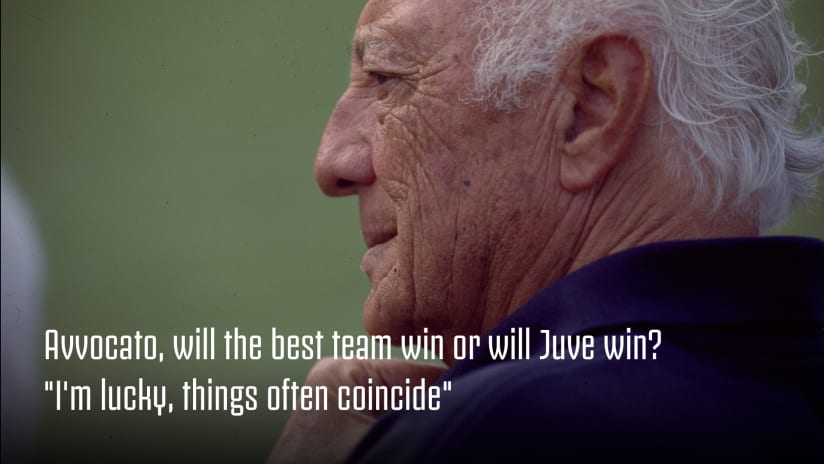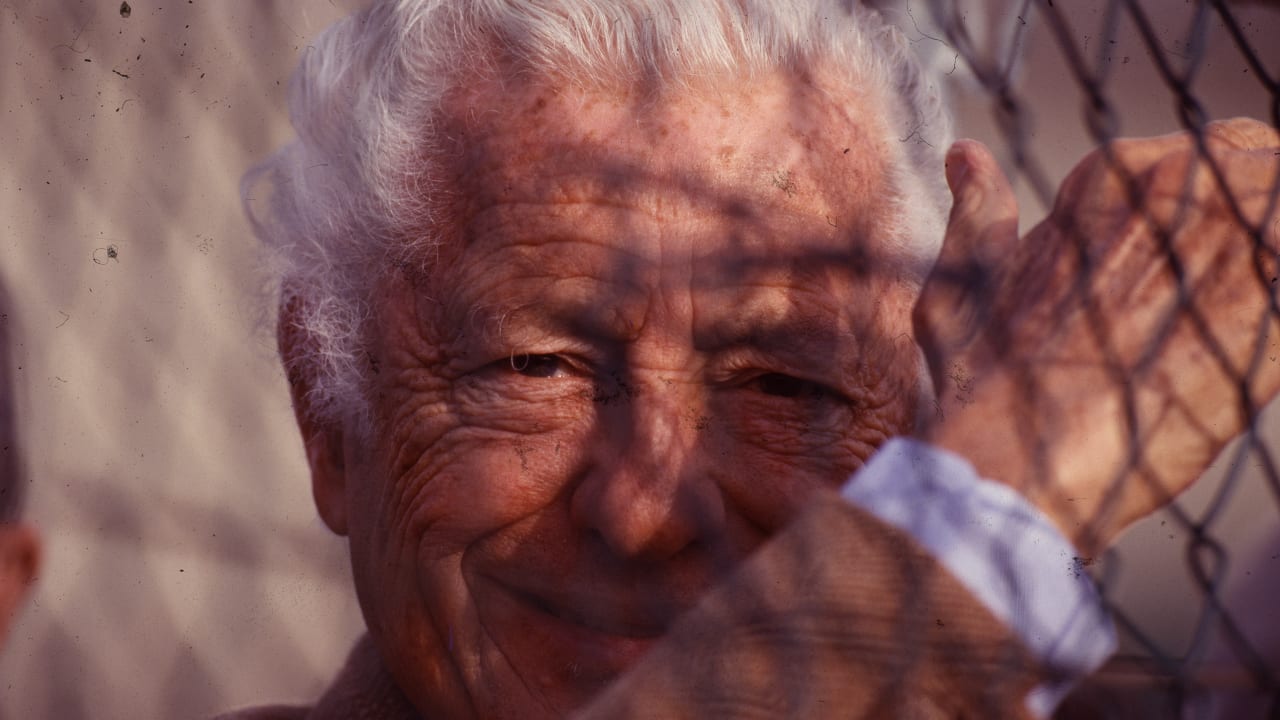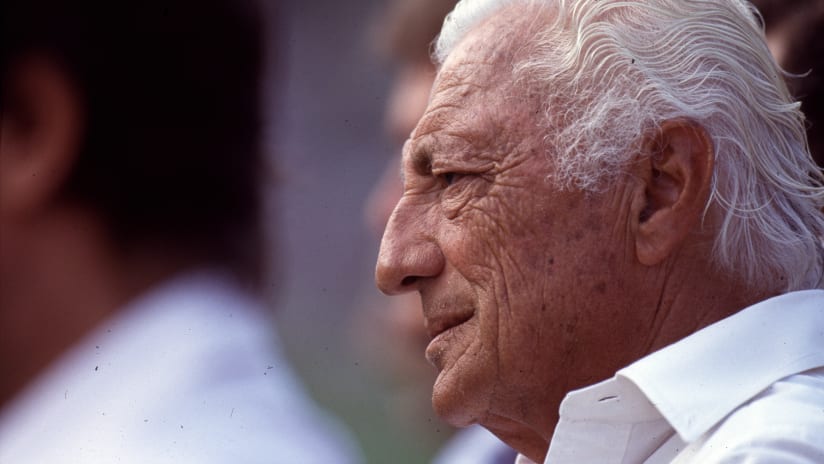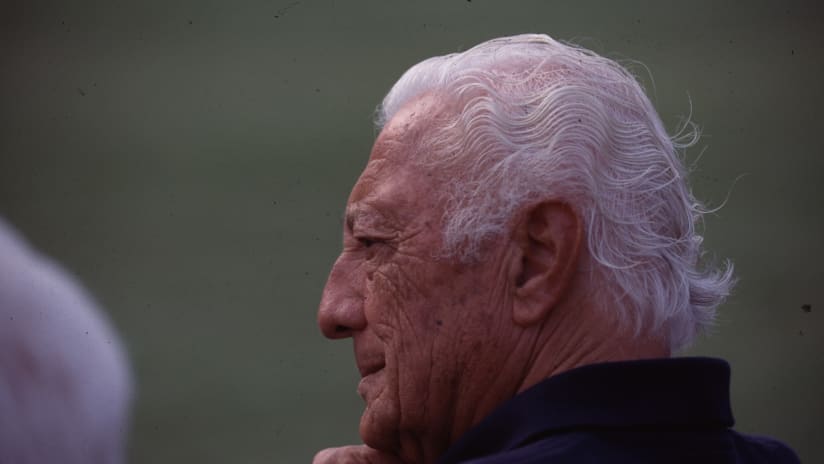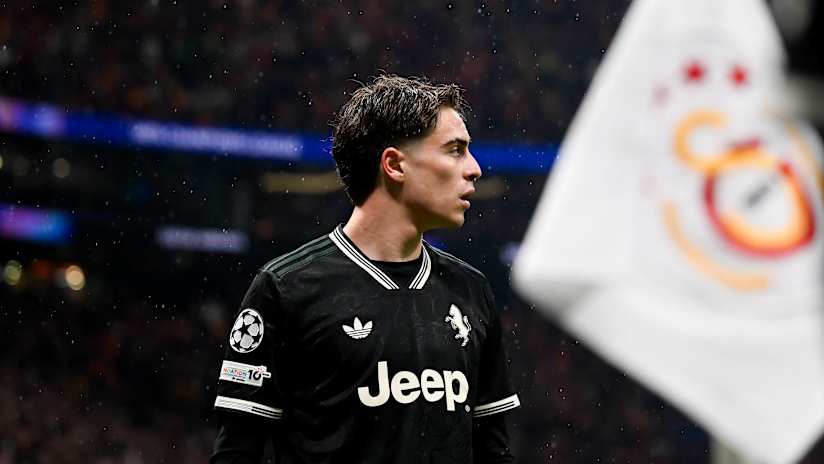12 March 2021
Everyone who loves Juventus owes Giovanni Agnelli an infinite debt of gratitude.
Gratitude for victories, emotions and excitement.
Gratitude that has underpinned decades of Bianconeri and football history, as well as that of industry, the economy and Italy as a whole.
Gratitude to L’Avvocato – the Lawyer – who turns 100 on this very day.
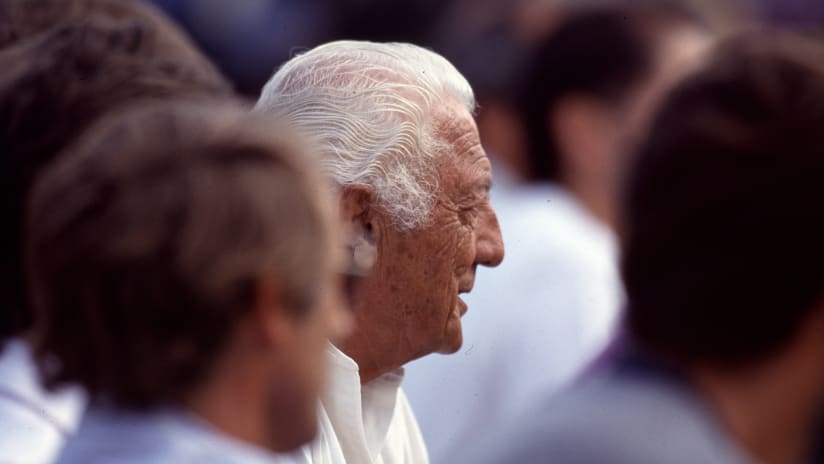
Giovanni Francesco Luigi Edoardo Aniceto Lorenzo Agnelli was born exactly a century ago in Turin.
On 12 March 1921, Italy was in the midst of a recovery from a war that left a deep mark and was unaware of the extent to which that mark would endure in the subsequent years. Some 19 months later, Benito Mussolini would march – symbolically, but not that symbolically – on Rome and the nation would gradually – though not that gradually – become Fascist.
His grandfather was also named Giovanni and it was he who, in 1899, founded the Italian automobile manufacturer FIAT (Fabbrica Italiana Automobili Torino).
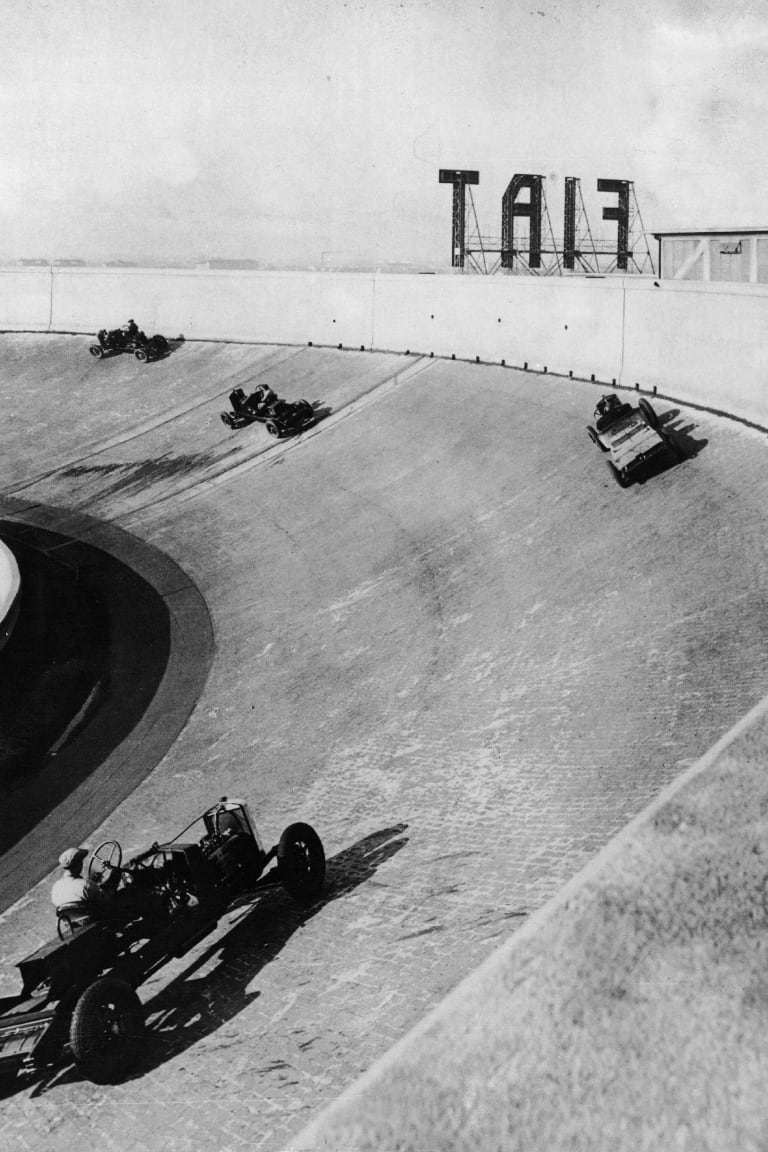
They were years in which Turin was increasingly becoming the centre of an industrial and industrious Italy, and the buzz could be seen at all levels. In 1897, for example, some students from the Liceo Classico D'Azeglio high school met on a bench in the city centre and launched an idea that seemed light-hearted, a way to pass the time and play sport, to give legs to their youth.
That idea was named Juventus, the Latin word for youth.
Edoardo Agnelli, who was both the son and father of a Giovanni, developed a passion for the team with the white and black shirts and, in 1923, became the club president.
The young Giovanni therefore grew up with these colours in his heart, in his home, in his thoughts and, most probably, in his childhood games. As he grew up Juventus enjoyed the so-called Quinquennio d'Oro, the golden period in which the club won five consecutive Scudetto titles. It was then that Juventus first began to reign over Italian football.
And so this period of time saw the genesis of a bond that would remain not only in the history books of football and sport, but also in the hearts and souls of all of us: a relationship of infinite love, linking two colours – white and black – and a family.
These were also the years of Giovanni’s youth, but they were tragically brought to a halt, on a hot summer's day in 1935. His father Edoardo was the victim of a violent and sudden accident, which snatched his life from him in his prime and left a young 14-year-old boy without a father.
However the young boy had strength, talent and a desire to get involved and get things done. He graduated from the Liceo D'Azeglio – history repeating itself in a sense – in 1938 and started to travel and discover the world. But the world was brought to an abrupt halt once again, as a second terrible world war broke out. He experienced it from the inside, in the army, and despite this he managed to graduate, and in law no less.
Giovanni Agnelli, since 1942, has been L’Avvocato – the Lawyer.
The war ended and the world opened up, with Agnelli’s future ahead of him. In 1945 he became Mayor of Villar Perosa.
“Ël Vilar ëd Perouza” in Piedmontese, “Ou Vilar” in the Villarese dialect, “Lhi Vialars” in Occitan. Today, Villar Perosa is considered part of the Metropolitan City of Turin, but little of it can be truly described as “metropolitan”. In fact, none of it can. It is located on the cusp between plains and the mountains of Val Chisone, a valley that ends at Sestrière, which by no coincidence is another place loved by Agnelli and his family.
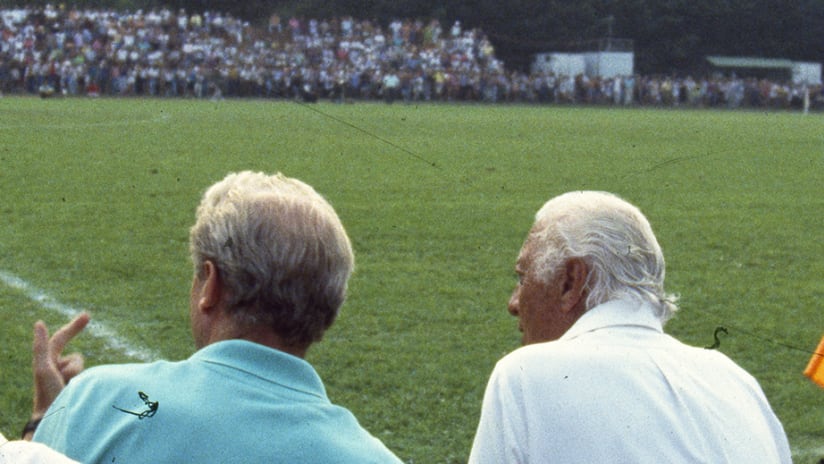
But Villar was not – and is not – merely “loved”. Villar is home, from every point of view: ever since that beautiful 18th-century villa belonging to the Counts of Perosa became the Agnelli family's summer residence in the 19th century, the bond has been unbreakable.
And we, the people of Juve, know it too.
During the cursed 2020 that we have just left behind us, necessary restrictions prevented us from enjoying the event that each year, for everyone, marks the beginning of the new campaign.
The family friendly. A tradition that, come to think of it, is wonderfully anachronistic: a team that is a brand, that represents - like few others – Italy in Europe and the world, goes to play in a field and gets changed in a dressing room at a venue that for 11 months of the year hosts matches in Italy’s seventh tier, involving the local side.
Villar Perosa, and the mountains that surround it, are the centre of something that is exclusive to Agnelli and Juve. One only needs to think of the photos of that 18th-century villa and the footballing greats that have been seen passing between those walls and in that garden: Platini, Baggio, Del Piero, Ronaldo. And then, everyone takes to the pitch, surrounded (literally, not metaphorically) by the Juventus people who treat themselves to a trip to the mountains together with their football heroes.
Villar Perosa and Giovanni Agnelli is a connection that is timeless, especially when you consider that it is here that L’Avvocato is buried, in the family tomb.
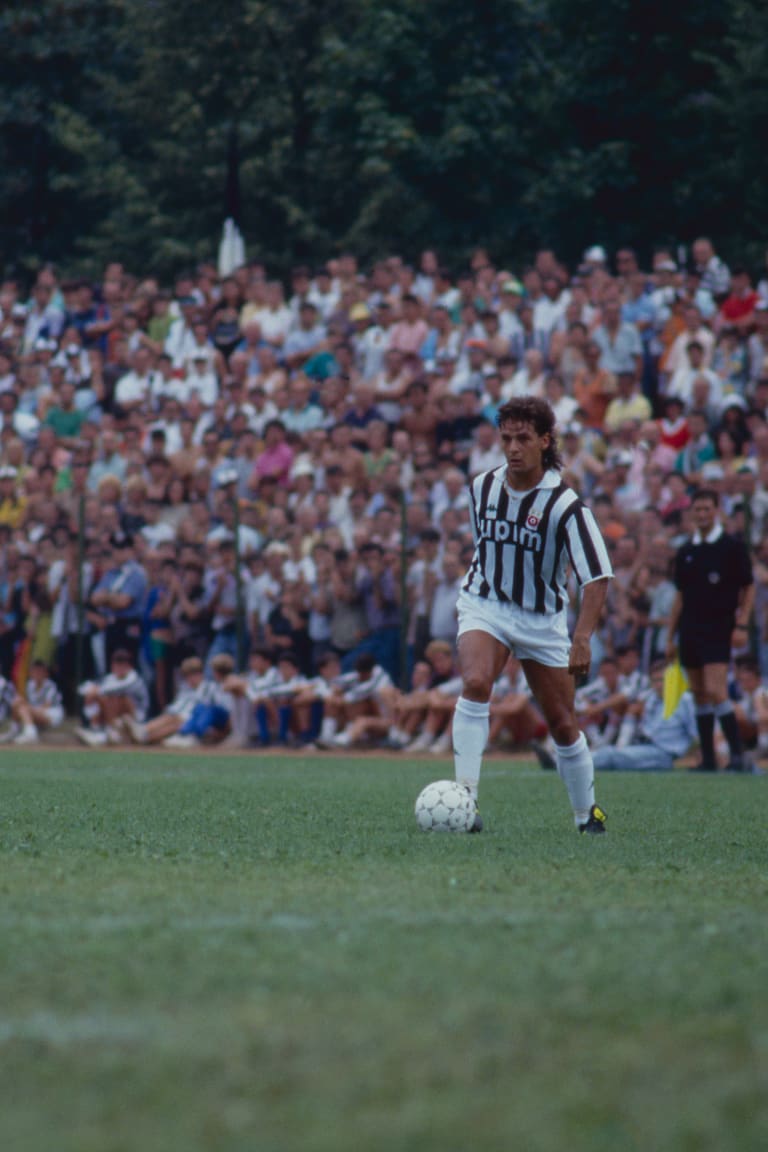
Today, however, we are talking about life.
The story continues.
On 22 July 1947, with Giovanni Agnelli having turned 26 four months earlier, the link between Juventus and the Agnelli family was further strengthened, and the Bianconeri had a new, young president.
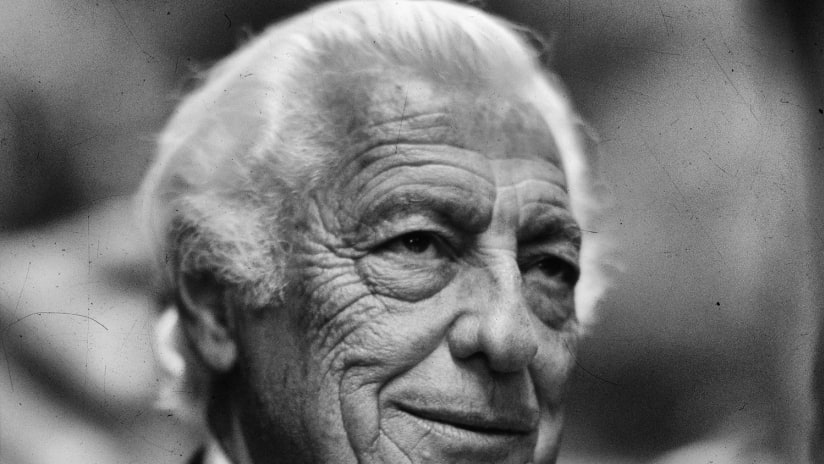
L'Avvocato and the Lady
Under Giovanni's leadership (this was the only time he held this position, until 1954), Juve won two Scudetto trophies: in 1950 and again two years later. There was one individual in particular who wrote pages in the Juventus history books over those years: Giampiero Boniperti. Born in Novara, Boniperti was only 19 when, in 1947, the very year Gianni became President, he made his debut in the Bianconeri jersey.
His debut – which came just a few months before he would cross paths with L’Avvocato – was in March, in a league match against Milan. This marked the beginning of another remarkable legend, one that would grow exponentially during the years of Agnelli’s presidency and yield fruit in the second half of the 1950s, when “BonipertiSivoriCharles” – Boniperti, Omar Sívori and John Charles – would become a single word, akin to a Hashtag, 50 years ahead of its time.
While Agnelli was Juventus president, Boniperti – who would later preside over the club himself – scored an average of 20 goals a season. Not bad for such a young player.
From lawyer to business leader.

Umberto Agnelli's memories
After a year of interregnum, in 1955 it was Umberto Agnelli – Giovanni’s younger brother - who took over the reins of Juventus, leading the club through those extraordinary years of Italian flair, Argentine tango and Welsh attitude, summed up in that one word we mentioned earlier: BonipertiSivoriCharles.
Gianni certainly took the Bianconeri presidency at a young age, but Umberto was even younger. He was only 22 years old when a committee of shareholders – including, L’Avvocato, of course – elected him to the most important role. Two brothers, practically one after the other, that oversaw the club for 15 years, a period of enduring love between the family and the Bianconeri colours.
A love and a bond that would later lead them to become honorary presidents of the club.
The same love that continues to this day, which we’re getting to, a little at a time.
A small jump into the future takes us to 1966. We are still in Turin. On 30 April, Vittorio Valletta, a great Italian industrialist, who was born in Liguria but built his career in the Piedmont capital, decided that the time had come – at the age of 83 and after 20 years in the role – to hand the presidency of Italy’s largest factory to the Chief Executive Officer, who had been in the role for three years and was now a household name in Italian business.
That factory is clearly FIAT. That household name is clearly Giovanni Agnelli.
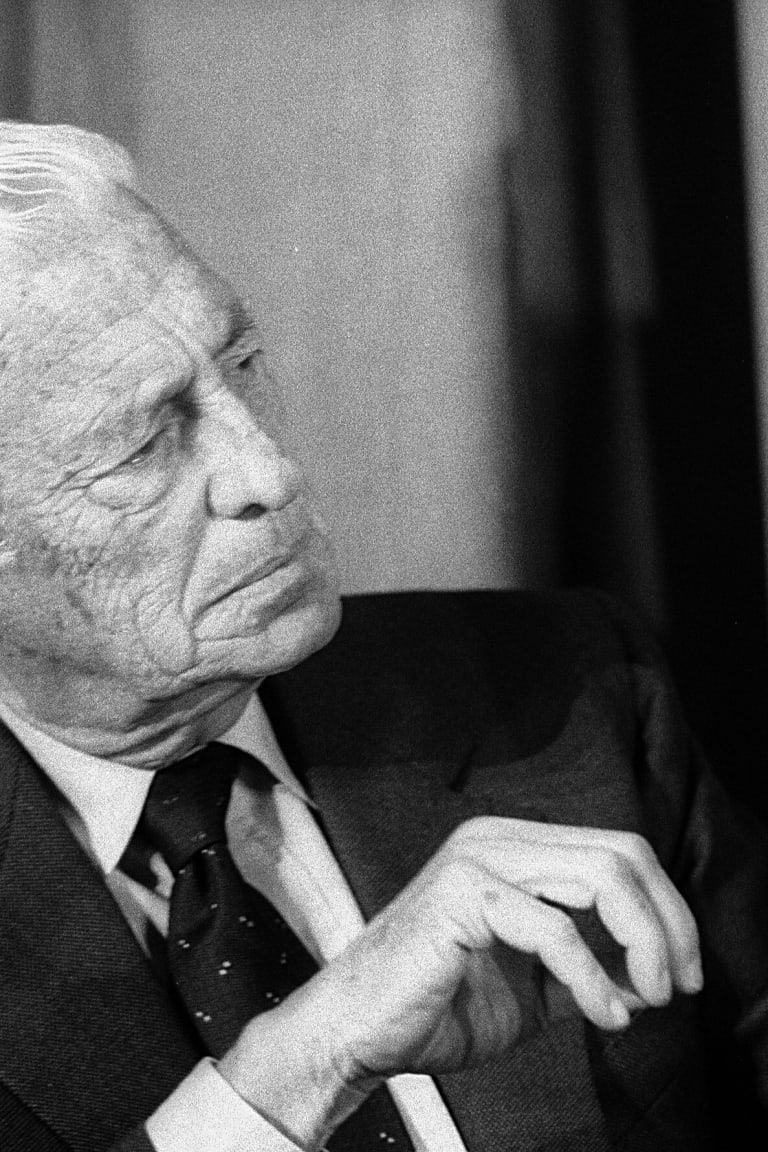
That which would take place while Agnelli was president and then main shareholder of FIAT would not only be the story of a company. It would be History, with a capital H: decades in the life of a city, a nation and in some cases the world.
Decades in which Italy was at the heart of the balances of the Cold War and endured the terrible Years of Lead, marked by acts of terrorism, some of the worst of which took place in Turin.
Gianni remained an ever-present. Opposed by some, supported by others. Loved by some, less so by others. For some he was a symbol of an Italy that works. For others he was a symbol of power.
As is only natural for a company with such a long history, FIAT endured its ups and downs over these decades. The company literally shaped the face of its home city. Life in Turin was in tune with the rhythms of the factory and the company. “Mamma Fiat” gave jobs and homes to its workers, who directly or indirectly, with the company and through it, organised their lives, made plans, realised dreams and lived out their thousands of family stories.
Some of the dreams realised were sports-related. Turin has two great football souls, one Bianconeri and the other Granata. These two conflicting souls – whose rivalry perhaps reached its greatest heights in the 1970s – are in some ways tied to FIAT and Gianni himself, honorary president of Juventus. Yet it would be too simplistic to say, “If you love him, you're a Juve fan; if you don't, you support Torino.”
There's more to it than that. Over the decades Turin developed into a metropolis of footballing passion which came to a halt on Sunday to listen to the radio. In 1976, Turin became the capital of Italian football, when the Torino side of Pulici and Graziani won the Scudetto, with the Juve of Bettega and Anastasi just two points behind.
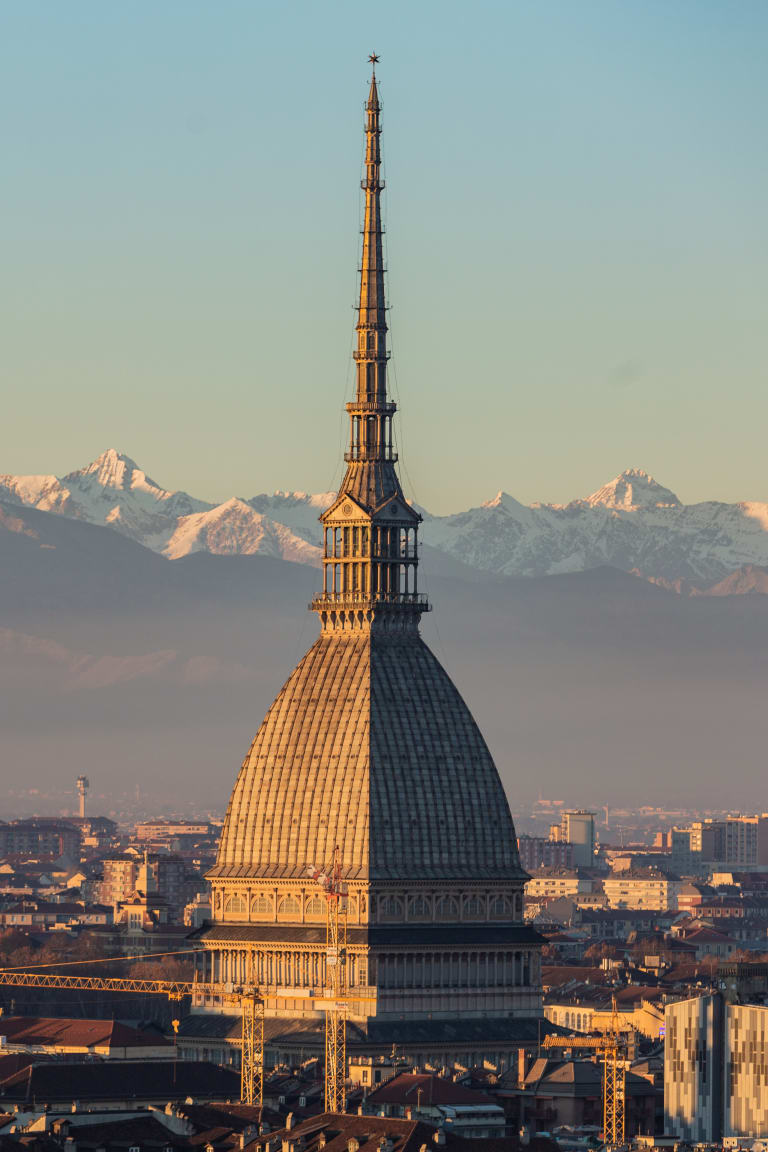
It was in the '70s, after a few difficult years, that Juve returned to the top of Italian football, laying the groundwork for an era of incredible success, not just in Italy but – finally – on the international stage too.
This is where Giampiero Boniperti became the connection with L'Avvocato's first Bianconeri experience.
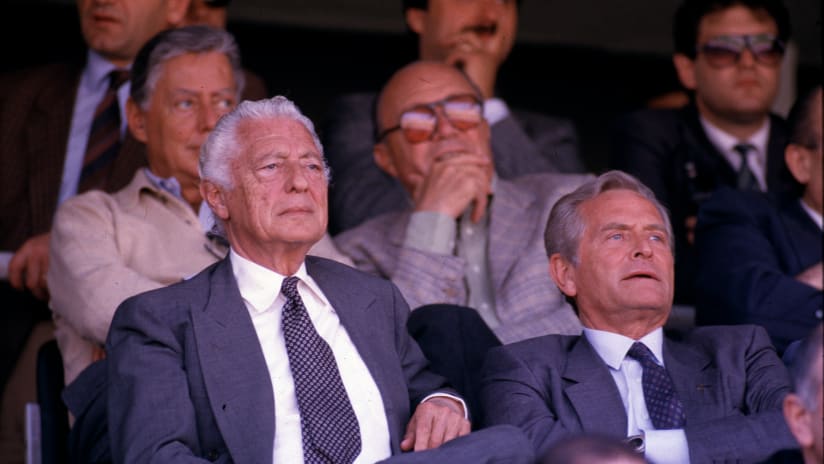
Boniperti became president on the club in 1971. Over the next 20 years (until 1990), autonomously but with Agnelli always by his side, he guided the Bianconeri to victory in every international tournament there was to win.
Those were unforgettable years which fans more than a few decades old still get goose bumps thinking about now. In 1977 Juve got over the disappointment of surrendering the title to their cross-town cousins the previous year and, having reclaimed their throne in Italy, set about reigning in Europe too.
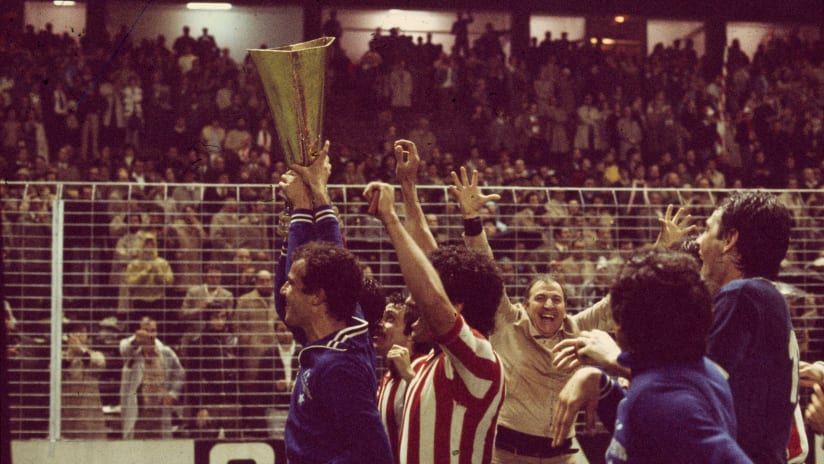
First the UEFA Cup, then the Cup Winners' Cup, but one still remained to complete the set: the European Cup. The Bianconeri went close in 1972, but had to bow to Johan Cruyff's fabulous Ajax side. They went into the 1983 final as favourites but left Athens empty-handed because of that cursed goal after just nine minutes. A goal Juve were unable to come back from, with the disappointment broadcast from Greece to the screens of all Italian supporters. Many of whom didn't sleep that night.
Flags with the images of the trophy, cakes, cars (mostly FIATs, naturally), all in black and white for a victory parade lasting the whole night.
A parade which never took place.
Everyone hoped the parade would be held two years late, on 29 May 1985, when Juve deservedly reached the final once again. The Battle of all Battles was set for Brussels. Juve v Liverpool, a repeat of the Super Cup played in the snow at the Stadio Comunale a few months earlier, after Juve had won the 1984 Cup Winners' Cup and Liverpool the European Cup, beating Roma in a shootout the memories of which still burn in the capital.
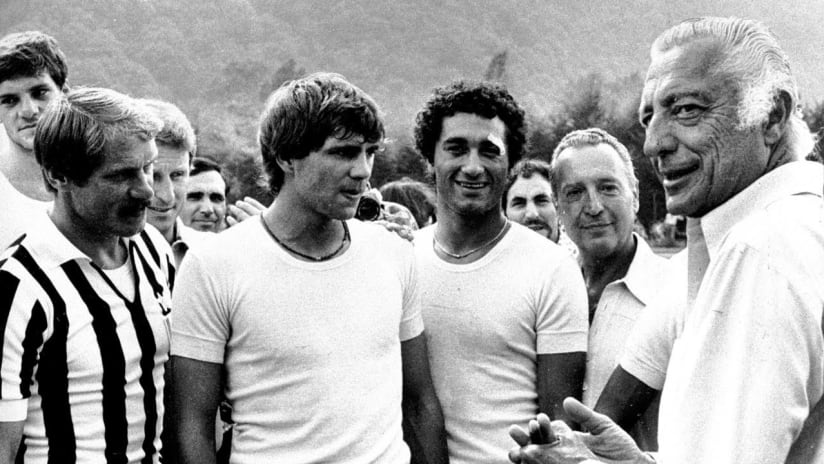
"What is Juve's secret, Avvocato?"
That January Super Cup settled by Boniek was the perfect prelude for the most highly anticipated final of all.
Yet the final was to be played in the worst circumstances imaginable: an inadequate stadium, public order problems, and that explosion in section Z an hour before kick-off.
Everyone knows what happened that evening. Agnelli was in the stands in Heysel and left early without seeing that despite, or out of respect for, the 39 individuals he later called 'Our Fallen', the match would go ahead.
The match went ahead and Juve won. But there was no victory parade in 1985 either. That 29 May will forever be a day of mourning that lives on in us all.
In the end L'Avvocato did get to see Juve lift the European Cup, or Champions League as it had become, in Rome in 1996, just a few years before he departed this world. Gianluca Vialli, a personal favourite of Agnelli's, was the captain of that side, which included Alessandro Del Piero.
Otherwise known as Pinturicchio.
Nicknames.
Certain skills make great individuals stand out and L'Avvocato possessed the ability to come up with nicknames, respond with a quip and make seemingly light-hearted or sarcastic comments that were imbued with meaning.
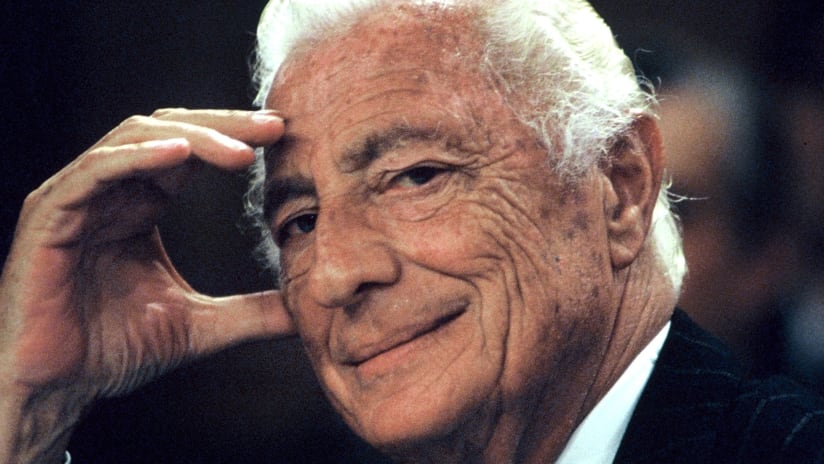
Agnelli was anything but banal.
L'Avvocato was the wristwatch he always wore with such class. L'Avvocato was the man who would call players and coaches at all hours of the night – and those on the receiving end were always honoured. L'Avvocato was the one-word answer in response to a protracted question. L'Avvocato was the nicknames he bequeathed: Sivori Il Vizio [The Vice], Vialli Michelangelo, Boniek Bello di Notte [Beauty at Night], Baggio Raffaello, Lippi il più bel prodotto di Viareggio dopo Stefania Sandrelli [the finest product to come out of Viareggio after actress Stefania Sandrelli].
L'Avvocato is a story of bonds, relations, stars – football and non – of 'Made in Italy' becoming 'Made in the world'. He is a story which began 100 years ago and is unlike any other, past or future.
A story that is Italian, global, sports and football. And utterly Bianconeri.
